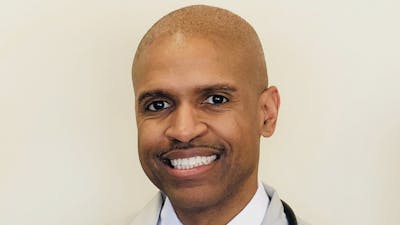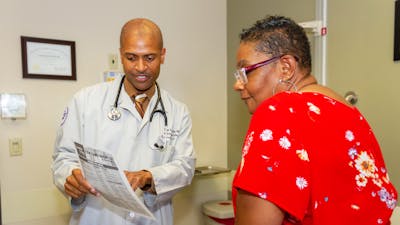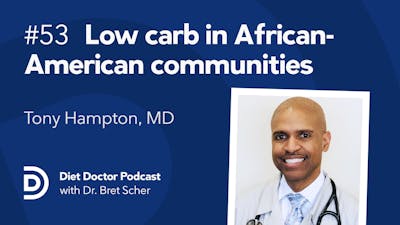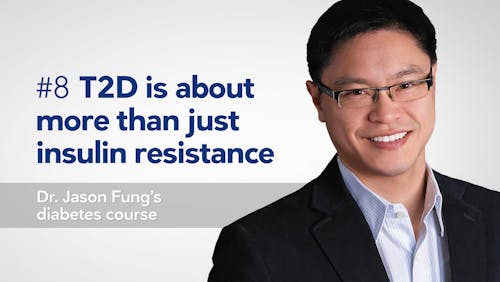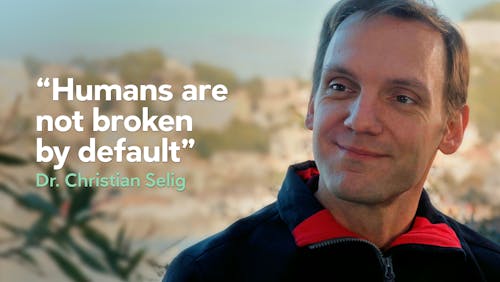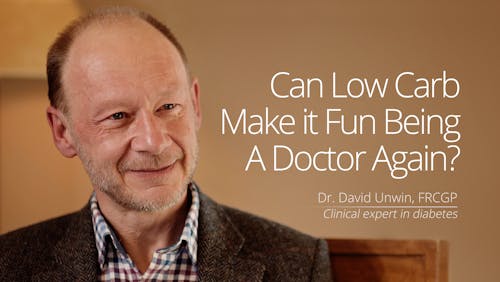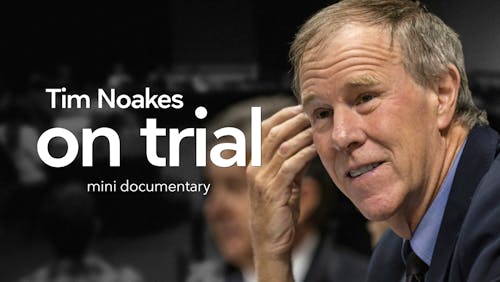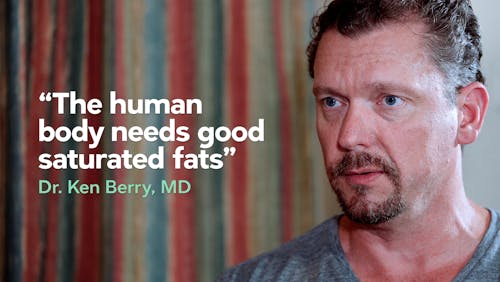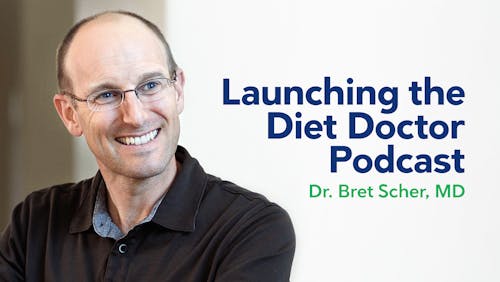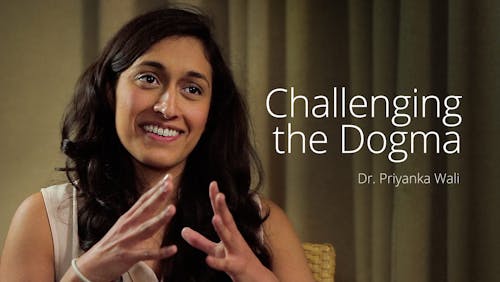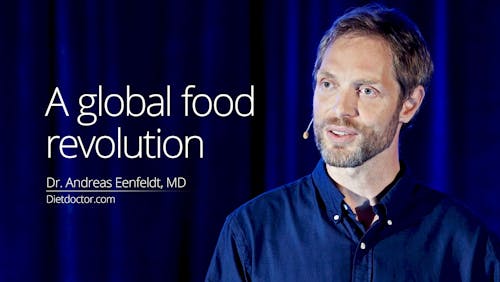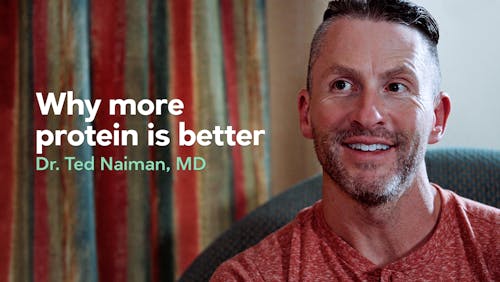Dr. Hampton: Helping you succeed with tips and stories
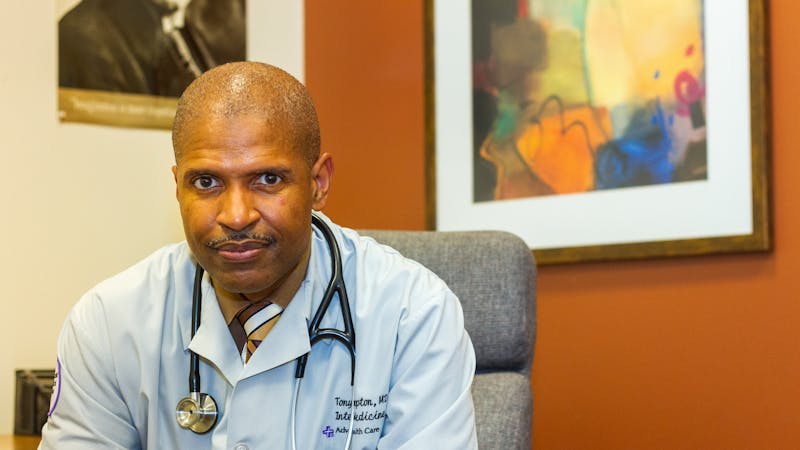
Photo: Spencer Bibbs
Nothing is more rewarding to me as a family doctor than to tell a patient that their lab tests are great, their health problem is gone, or that they no longer need to be on medication for a serious chronic disease, like diabetes, that they’ve been told usually just gets worse over time.
Delivering that news is a cause for high fives, hugs, and celebration. “You did it! Way to go.”
However, in my first 15 years as a family doctor, working in the South Side of Chicago, while people regularly got better from a sudden illness, removing a patient from medication for a chronic disease like diabetes or hypertension rarely, if ever, happened.
Honestly, I don’t think I can recall any time in those first 15 years when I removed a patient from a diabetes medication because their condition had improved.
Now for the last five years, ever since I’ve been coaching my patients to adopt a low-carb diet, it happens all the time.
Patient success is inspiring
I love these stories and, with my patients’ consent, I love sharing their successes to inspire others. There’s always something to learn from what they struggled with, what made it easier, or the solutions they found to common issues that many have.
That’s why I am delighted that I am now going to be writing a monthly column for Diet Doctor about some of these patient challenges and solutions. I now have my own page with stories, a column, cooking videos, and more. While it will be tailored to the needs and experiences of African Americans — because that is 95% of my patient population — the tips and stories will be relatable to one and all.
We hope that you will find it both helpful and inspiring for your own low-carb success.
Sometimes I’ll be using real patient stories, with their consent. Other times the story may be a composite of patients who all had similar, common struggles that I see all the time as a doctor. Or it might be an anonymized story to protect the patient’s identity for something more sensitive.
However, the tips and examples will be real.
Food is just one part of the picture
The columns won’t always just be about issues around the low-carb food they are eating. One thing I have repeatedly noticed as a doctor is that the actual information about nutrition — the food we put in our mouths — is just one piece of the puzzle to good health. And often, on the surface, it is one of the simplest things for patients to understand.
It’s a list of “eat this” and “don’t eat that.” They get that. We try to make the “eat this” list include all their favorite proteins and low-carb foods.
But when applied to their real, day-to-day life, the execution can get more difficult to do. The complexities of life get in the way.
What kind of complications intrude? Jobs, family members, colleagues, friends, finances, cooking skills or life skills, attitudes, stress, emotions, even their reactions to the daily news — all this and more can come between them and the ability to actually eat that list of low carb foods or succeed on the diet.
That’s why I created my two acronyms, NEST and ROPE, which were described in both the profile by Anne Mullens and the podcast with Dr. Bret Scher, about the factors, along with their diet, that either help or hinder patients in their success.
To recap, those letters in N.E.S.T. stand for Nutrition, Exercise, Sleep (more)/Stress (less); Thinking/Trauma. In R.O.P.E they stand for Relationships, Organisms, Pollutants, and Emotions. As I say, you use your ROPE to get to your NEST. My podcast is called “Protecting your NEST.”
This column won’t be stories of success, all the time, because that’s not real life. It will reflect patients’ realities, their real struggles and challenges, and some examples of solutions that worked for them that might work for you, too, if you are facing similar challenges.
To end off, I want to share the success story of my patient Monique Travis, who is really excited to share her progress with you. Monique is 46, a registered nurse who works as a case manager, now from her home because of Covid-19. I will let her tell you in her own words what has happened to her.
Monique’s story
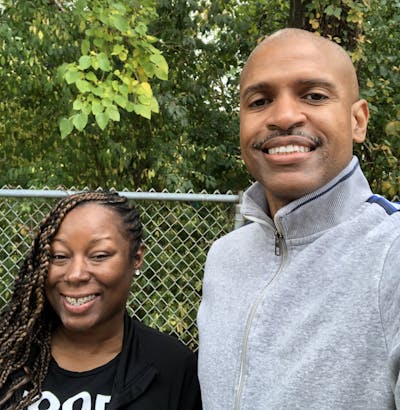



“I think I must have had Covid in January, or at least a very bad flu. And I just couldn’t feel better for months afterward. I was tired all the time. My heart rate was high. I felt awful. My pain was worse than ever. I was referred to a rheumatologist and in June given the diagnosis of Sjogren’s Syndrome, an autoimmune condition that would mean I would have to go on steroid drugs. I didn’t want to take them.
“Dr. Hampton had always been talking to me about my diet — for years —in a nice way but finally, I was ready to listen and try. So he coached me on what to do and it finally clicked.
“In June I started eating a low-carb diet. I now keep it really simple. For breakfast, I have an egg-white omelet with avocado and vegetables (I don’t like yolks). For lunch, I would have something like tuna patties with more avocado, or a salad with spinach, salmon, and some veggies. For dinner, I actually find I am not that hungry, but I might sometimes have some grilled chicken with some vegetables. Or I might do an overnight fast, which feels easy. My favorite drink is ginger tea or water.
“And the most amazing things have happened. At about two weeks I noticed that I actually had no pain. I was walking around the grocery store, which used to be really hard for me, and I suddenly thought, ‘Hey, nothing hurts.’ The pain in all my muscles and joints has gone away.
“I have lost my taste for sweets. I even had a bite of birthday cake a few weeks ago and I just found it too sweet. I didn’t want it. And I have lost 40 pounds in three months. I am now 190lbs! I have not been that weight for more than 20 years.
“Most of all I have so much energy, which I haven’t had for years, and my depression has lifted. I have been a case manager, which is a desk job, for two years because I could not walk enough to do a hospital nursing job. Now I am walking more than two miles every day, with no pain, and I am feeling really excited that I may eventually be able to go back to my old RN job, that I loved. I have that much energy now.
“My advice is ‘just do it’. Don’t make it complicated. Eat simple food that you like and tell yourself for the old food, like the sweets, ‘You don’t need to eat that.’ And walk if you can. Walking is easy and it was where I really noticed the change in my health. I could finally walk without pain and tiredness.”
*************
No one’s life is without struggle
Isn’t Monique’s story great? I have so many patients like her who’ve lost their reflux, their depression, their autoimmune conditions, their pain, and fatigue. Monique’s journey is off to a wonderful start. It may not be smooth sailing all the way — nobody’s life is without a bit of struggle or setbacks.
But now she has the feeling of success, energy, and empowerment and that has set her well on her way.
Throughout these columns in the coming months we’ll explore some common challenges and setbacks. And if you have a question, or an example of a NEST or ROPE issue that you feel is hindering your success, write to me at drtony@dietdoctor.com. We will explore some potential solutions.
I can’t wait to be your guide.
And remember to always protect your NEST
